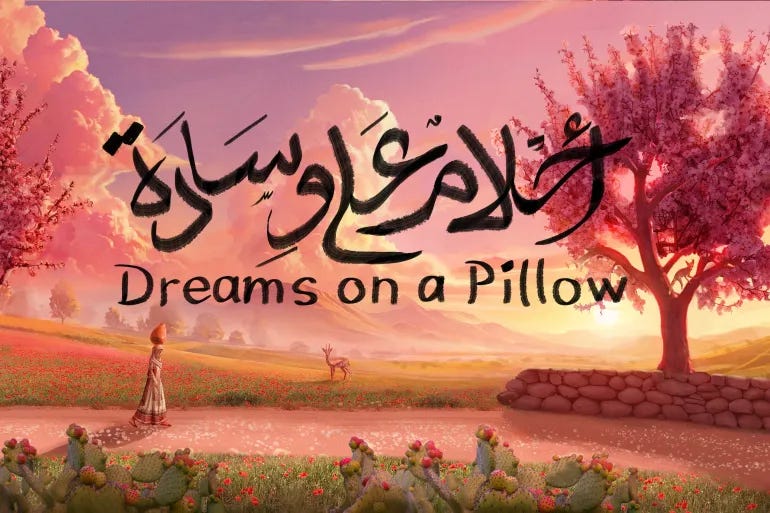‘Dreams on a Pillow’: The Palestinian Game Exploring the Nakba
Inspired by the 1948 Nakba, the game offers a poignant narrative of displacement and trauma through the eyes of a Palestinian mother.
Can a video game make you feel the weight of history? That’s the goal of Dreams on a Pillow, a new pseudo-3D stealth adventure game created by Palestinian developers. Set to be released in 2026, the game is deeply inspired by the 1948 Nakba, or “catastrophe,” which saw the forced displacement of over 750,000 Palestinians from their homes as the state of Israel was established.
Who’s Behind the Game?
Dreams on a Pillow is the brainchild of Rasheed Abueideh, a developer based in the Israeli-occupied West Bank. Known for his previous work on Liyla and the Shadows of War—a game about the 2014 Gaza offensive—Abueideh aims to create a masterpiece that reflects the painful history and emotional trauma of the Nakba. The game will showcase the deep connection to Palestine’s culture and history, which Abueideh believes is often misrepresented in Western narratives.
Despite his past success, Abueideh struggled to secure funding from traditional sources. He turned to LaunchGood, a crowdfunding platform that focuses on supporting Muslim communities, which helped raise $218,272 to fund the development of the game.
The Story Behind Dreams on a Pillow
The game follows the story of Omm, a young Palestinian mother who flees the 1948 massacre in Tantura, a Palestinian village now part of Israel. As Omm travels through various villages and refugee camps toward Lebanon, she witnesses the widespread devastation caused by the Nakba. Her journey becomes a lens through which players can explore both the broader historical events and the deeply personal experiences of displacement.
Omm’s tragedy unfolds when, in the chaos of fleeing, she accidentally grabs a pillow instead of her newborn child. The various versions of the story depict different outcomes: some portray Omm descending into madness, while others show her successfully evading military patrols to escape her homeland. The psychological trauma of the Nakba is central to the game, with Omm’s experiences underscoring the emotional and mental toll of the forced displacement.
Abueideh explained that the character of Omm was chosen to highlight the devastating psychological effects of the Nakba, a perspective often overlooked in historical discussions.
Connecting History and Gameplay
Unlike Abueideh’s previous game, Liyla and the Shadows of War, which focused on the 2014 Gaza conflict, Dreams on a Pillow offers a more introspective experience. Omm’s journey is interwoven with gameplay mechanics that reflect her emotional state. As she carries the pillow, she feels a sense of safety, but when she sets it down, her psychological state deteriorates, manifesting in nightmares and hallucinations. This experience of trauma is central to the game’s mechanics, creating a powerful connection between the gameplay and the emotional weight of the story.
Abueideh emphasized the game’s role in showing the rich culture and history of Palestine before the Nakba, countering the myth of a "land without people." Through Omm’s dreams, players will experience the beauty of Palestinian life before the displacement and violence of 1948.
A Controversial Journey
Dreams on a Pillow is being developed during a tense period for Palestinians, as they continue to struggle with ongoing Israeli military actions, particularly in Gaza, where over 46,000 people have been killed in a prolonged bombardment. Despite the sensitive nature of the subject matter, Abueideh is determined to tell the story of his people and their displacement.
The game’s release in 2026 will offer a poignant reflection on the Nakba, providing a unique and emotionally charged narrative that aims to foster a deeper understanding of Palestinian history and trauma. However, the game's development and eventual release may face significant challenges, particularly given the scrutiny and censorship that Palestinian content often faces on social media and other platforms.
As the Nakba remains a central point of contention in the Israeli-Palestinian conflict, Dreams on a Pillow seeks to preserve and share a vital part of Palestinian history, ensuring that the stories of displacement and loss are not forgotten.


